What you’re about to read is a perfect example of what you pay for (if you’re paying) and why you should if you’re not (pretty please): tight, succinct coverage of the public schools and the upcoming (mostly uncovered) school committee race—by a WPS mother who cares and knows her stuff! Your $5 a month helps us sustain a committed, worker owned local media outlet in a city in desperate need of more and better local journalism. —Bill
Welcome to the July issue of WPS in Brief. This month covers key topics from one school committee meeting and one subcommittee meeting.
But first, let’s talk about the upcoming election.
School Committee Election.
There’s two questions, dear reader, that I need you to answer before you continue:
Are you registered to vote?
What school committee district do you live in?
If you don’t know the answer to either of those questions please click here. And if you do know, text two of your friends right now asking these questions! Yes, I’m serious.
The 2023 school committee election brought a new district model and more members on the school committee. The committee went from six at-large members to six district members and two at-large members. The Mayor also chairs the committee. In 2021 a coalition of people, including the Worcester Chapter of the NAACP and Worcester Interfaith, brought a lawsuit against the city.
The basis of the lawsuit was that the at-large system “deprives communities of color of the opportunity to elect candidates of their choice” and violated the federal Voting Rights Act.
City council settled the lawsuit and new districts were drawn so that there were two “minority-majority districts.” (Ironically, for both elections since the minority-majority districts of B and D only have one candidate, thus leaving voters in those districts with less choice than they had in the fully at-large model.) The new districts are labeled by letters A-F. These are different from the city council districts which are labeled by numbers 1-5. In June 2022 City Council tabled an item to discuss aligning the city and school districts in a 6-4 vote.
If you are a voter, you will be casting up to four votes to decide who is on the school committee: one for your district, two for at-large, and one for the mayor, who chairs the school committee. There are four districts out of the six where incumbents don’t have challengers: district A, B, D, and F. So if you live in those districts, sorry, you get what you get. In District C Dianna Biancheria1 and Feanna Jatan-Singh are running. And in what I think is a preview of the 2027 mayoral race, incumbents Mauren Binienda and Sue Mailman–who both live in district A– are running for the two at-large seats. Also running at-large is challenger, and WPS parent, Adwoa Sakyi Lamptey (big fan of Addy, but more on that next month).
The focus today is on District E, which will have a preliminary on Tuesday, September 2. The two highest vote getters will be on the ballot in November. District E is one of the most expansive districts, with many very different neighborhoods. Likewise, the three district E candidates come from very different parts of the district: Noelia Chafoya from Quinsigamond Village, Nelly Medina from the Columbus Park neighborhood, and Kathleen Roy from the Heard St. neighborhood—literally on the last street before the Auburn/Worcester line. Here’s more about them:
Noelia M. Chafoya.
Noelia M. Chafoya is the parent of a WPS kindergartener and a graduate of North High. A first-generation Salvadoran, Chafoya grew up in a bilingual home. In elementary school, her family moved back to El Salvador after the traumatic death of her uncle. When she returned to Worcester midway through fourth grade, she no longer spoke English and was placed in transitional bilingual education classes. She received a full scholarship to Assumption and graduated in 2009. On her website, she explains, “Having grown up in this community, I understand the importance of support and opportunity in a student’s success.” Her platform stresses improving academic performance and curriculum, enhancing school safety and mental health support, supporting teachers and staff, and strengthening community engagement and transparency. I met Noelia for the first time a little over a year ago, and I have been impressed by her thoughtfulness and ability to listen and really hear people where they’re at (probably the number one quality I think is essential to being a strong school committee member). I also appreciate the lived experience she brings to the table that reflects the WPS student body.
Nelly Medina.
Nelly Medina is the parent of a WPS third grader and is a familiar name to anyone who watches school committee meetings or advocates for our schools. Medina’s platform includes advocating for “funding for robust enrichment initiatives,” students with special needs, reliable transportation and “professional development, fair wages, and a safe workplace” for teachers. On her website Medina says she is running for school committee because “our public schools need a representative committed to transparency and open communication.” Nelly is dedicated and has meaningful experiences, including as a former foster youth, a parent of a student on the autism spectrum, and as a community advocate for a number of equity issues at the Lakeside Apartments public housing complex, most notably pressuring the Worcester Housing Authority to unlock the gated fence separating the housing from nearby Coes Park. Medina ran in 2023 against Kathi Roy, losing by 103 votes. She was a defendant in the lawsuit to create the district model for the school committee, and I think it speaks volumes that she has stepped up to run twice now in support of that model.
Kathi Roy.
Kathleen “Kathi” Roy grew up in Worcester and is a graduate of WPS. She identifies as a “parents rights'' candidate.2 Let’s take a look at some highlights of how she’s been as a school committee member:
In 2024, Roy gave then-Superintendent Rachel Monárrez an objectively unreasonable evaluation. It’s also worth noting that it was a who-copied-who moment with Dianna Biancheria that, if they were students, probably would have been flagged as academic dishonesty.
Roy voted for the new cell phone policy in subcommittee and then voted against it when it came up at full committee. Roy, who said during her 2023 campaign that there should be no cell phone use in the classroom, did not ask a single question or offer any feedback.
Some of the few items Roy put on agendas were around summer reading and libraries. One of the few times she spoke on the floor is when she spoke fondly of her elementary school librarian, and has stated that she wants to get school libraries back in schools.
Roy voted against signing onto a lawsuit to stop the dismantling of the US Department of Education (the vote was 6-2, with Dianna Biancheria also voting against).
Roy filed a police report saying she didn’t feel safe around Sue Mailman after Mailman asked her “how she felt about the insurrection now?” The question was in the context of the federal government’s attempt at dismantling the Department of Education and its withholding of millions in grants from WPS. Roy, a member of the city Republican committee, still has not explicitly said that she did not organize bus trips to Jan. 6.
There’s a lot of cognitive dissonance in Roy’s campaign, for example, when she says her priority is to “address the needs and implementation of the school safety audit,” but when the district made the safety audit available for school committee members to read in person she never did (according to the district Binienda, McCullough, Mailman and Johnson did). It begs the question of whether “school safety” is actually a priority or just a talking point.
As we face a dearth of media coverage of the municipal election (miss you Neal!) I hope to offer a perspective that helps you make an educated choice according to your priorities and values. I want you to feel informed without feeling overwhelmed. If you live in district E, make sure you have a plan to vote on September 2!
July In Brief
What happened this month:
Federal Funding and Charter School Underfunding.
At the start of July I posted about the impact of the final state budget on WPS due to underfunding the charter school reimbursement. Last week Tracy Novick ran the numbers and found what was previously reported as a $900,000 reduction due to the underfunding, now looks like a $2 million reduction. Add this to the federal funding freeze of entitlement grants and the school committee will likely need to reduce the budget approved in June by close to $5 million. See my post on how you can advocate.
Proposed Change in Grading Policy.
The Finance, Operations and Governance subcommittee had “Mastery Based Grading Practices” as its sole item for a special meeting on July 8. It seems that the item is about changing high school and middle school grading practices to reflect “understanding over task completion, encouraging deeper engagement and skill development” and to “ensure grades reflect learning, not external challenges.” I say seems, because the district, represented by Deputy Superintendent Marie Morse and Executive Director Will Foley, did not present the 45-slide deck provided in the backup (which I assume someone worked hard on) nor did they give a comprehensive overview or summary about what the recommended changes are or what the committee was approving. (A pilot? a policy?) In my five years of watching meetings I have never been so utterly confused about an item.3 And the school committee members were too, evidenced by their questions and their pushback against the desire to rush this item along due to the pending start of the school year. In a 2-2 vote, Jermaine Johnson (District F) and Kathi Roy (District E) voted against the item. That means it’s stuck in committee and it’s the sole item on the agenda for another special FOG meeting on August 5. Hopefully that meeting will offer more clarity so that I can tell you specifics about the changes that are being proposed, which right now I can only infer from a slidedeck.
Meeting Moment.
At the July 10 meeting Alex Guardiola (District D) claims the district is being purposely manipulative in the report they submitted in response to his item requesting “the number of employees that maxed sick leave in both the 2022 and 2023 years.” (To be fair the report is giving the information as written in his item.) Guardiola goes on to imply that there is a chronic issue of teacher absences and infers that maybe there are more than a small percentage exceeding their sick time, which under their contract is 15 sick days.4 Guardiola adds, “This is something we have to continue to watch and monitor.” He requested an additional report asking how many people use their allotted 15 sick days, how many exceed it, and then how many use those 15 sick days in continuous years.
I don’t disagree that teacher absences can impact student learning, but teachers have earned those sick days, and have a right to take them. If Guardiola wants to understand how teacher absences impact students (and other teachers) he’s asking the wrong questions. Some better questions could be:
What percentage of teacher absences are filled with day-to-day subs? What percentage with building subs? And how many are not filled?
What happens when no day-to-day sub, building sub, or long term sub is available?
How often are students split into other classes when a sub is not available?
How many missed minutes of special education services and English learner services are there due to absences or due to those teachers covering a class whose teacher is absent? Do any of these things happen at certain schools more than others?
Does the state accountability system around attendance rate and the district’s “attendance matters” campaign push families to send their kids to school when they’re sick? How often do teachers get sick from their own students?
Teachers taking less sick days isn’t going to happen because a school committee member shamed them. The school committee needs to come up with proactive solutions that support teachers and students within their purview, like: increasing pay to recruit more day-to-day subs, budgeting for building subs, and policies they can put in place around what happens at a school when a teacher is absent.
Lots of Reports, not a lot of discussion.
If you didn’t read my agenda preview from the July 10 meeting, I recommend going back to read it, because there were a bunch of reports on the agenda that weren’t actually talked about during the meeting, but could be of interest to you such as a revised wellness policy, reading and math data, and Quadrant team data, to name a few.
Recommended Reads.
“Why does NYC make it so hard for parents to make the choice we did?” An op-ed from two NYC teachers/parents on why they pushed for their child, who started kindergarten at 4, to repeat kindergarten. Like NYC, Worcester has a kindergarten cutoff of December 31, where in almost all other Massachusetts districts the cutoff is in late August or early September. “Worcester is asking four-year-olds to meet state standards set for five-year-olds.” And that developmental gap does not necessarily go away as kids get older.
“Millionaires tax spending gets complicated” - The New Bedford Light. Is the “Fair Share” tax supplementing education spending, or supplanting it?
“Use of AI reading tool in Worcester schools raises privacy concerns.” A Telegram article about my privacy concerns with the district’s use of AI reading tutor Amira Learning.5
Also.
Consider donating to some WPS teacher projects on donorschoose. Including a kiln for Burncoat High, headphones for a fourth grade class at Belmont St. a bookshelf for a Grafton St. classroom, or pinnies for North High physical education classes so students can identify who is on what team.
Thanks for reading. If you find WPS in Brief valuable, please share it. If you’d like to support my work you can become a paid subscriber or send me a tip. See you in August.
I could not find a campaign website for Dianna Biancheria.
If you want to understand parents rights groups and how they work to destabilize public schools I highly recommend this podcast.
As was the Guardian, who clipped an image from the slides implying it’s Worcester’s revised grading scale. But it was just an example of what Boston is doing.
I was curious, so I went back to look at my two elementary kids’ absences last school year. Both were absent four separate times, so 8 sick days I had to take right there. Plus I had walking pneumonia in October (sick five days) and then I had covid in May (sick another five days). That’s 18 days, and doesn’t even count my doctor’s appointments this year (annual physical, gynecologist, mammogram, and a colonoscopy). Needless to say if I was a teacher I would have definitely exceeded my allotted amount.
Just a cultural note that the “y” doesn’t exist in the Irish alphabet. IYKYK.


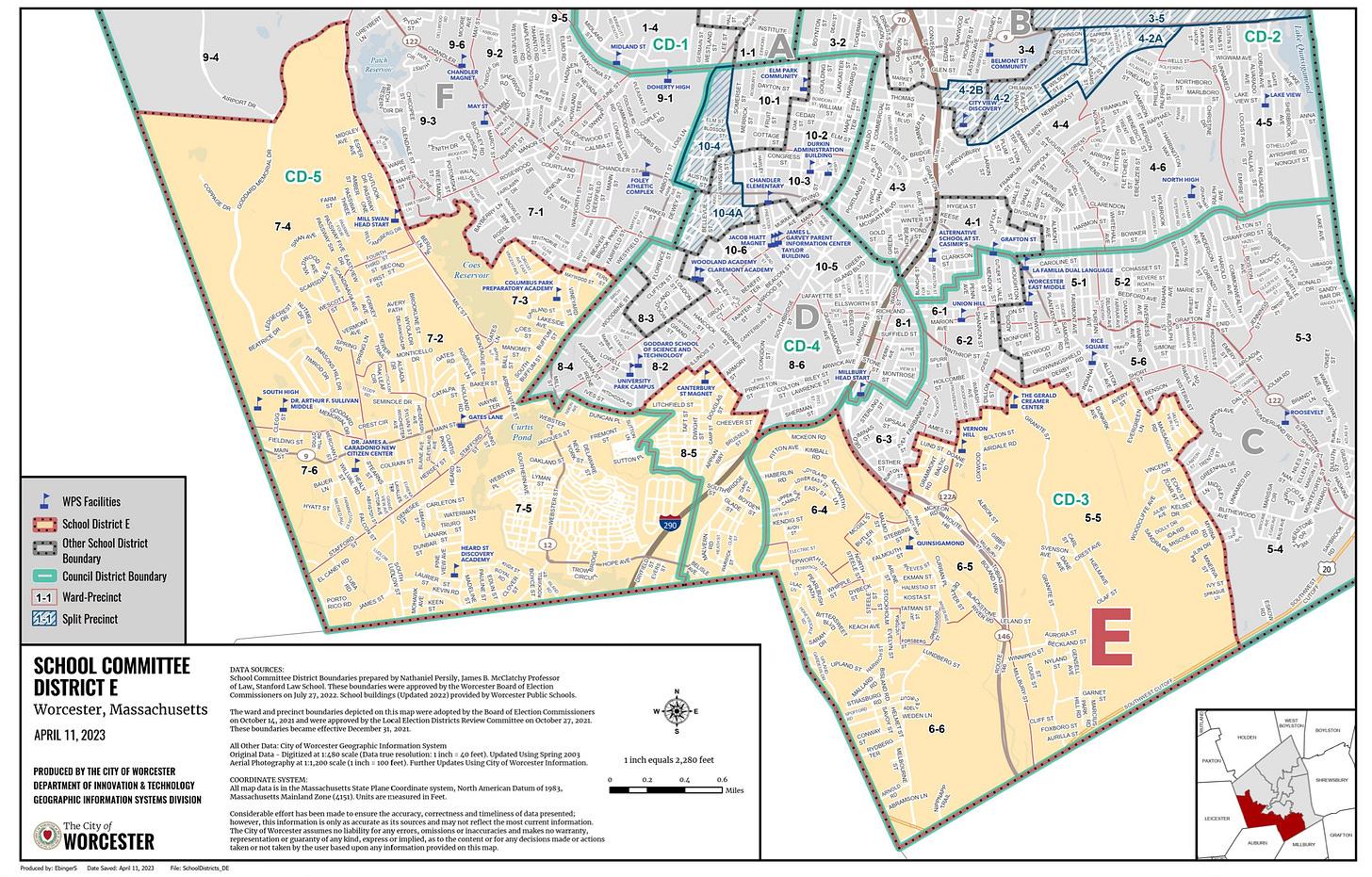
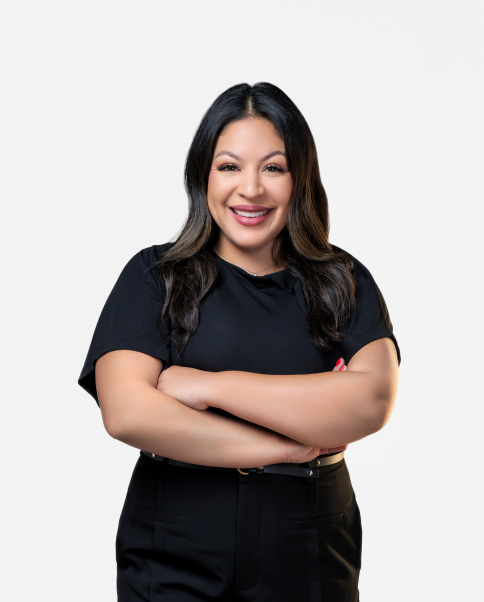
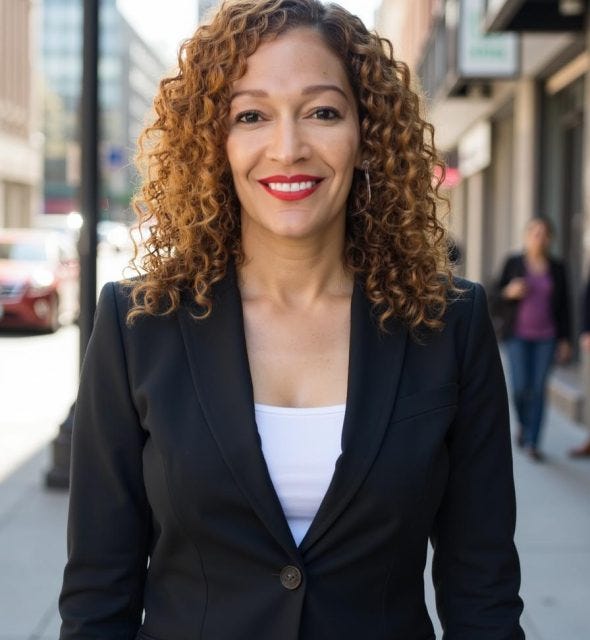
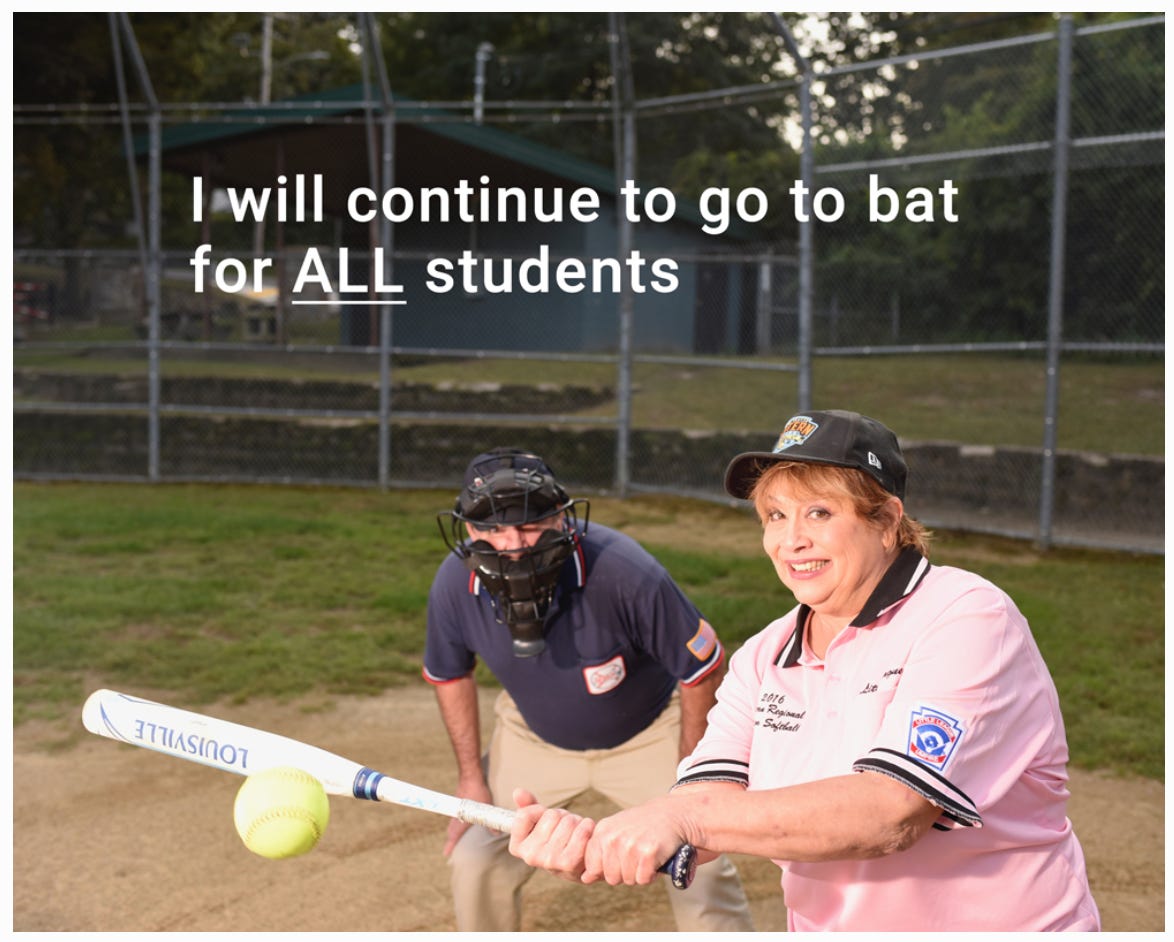
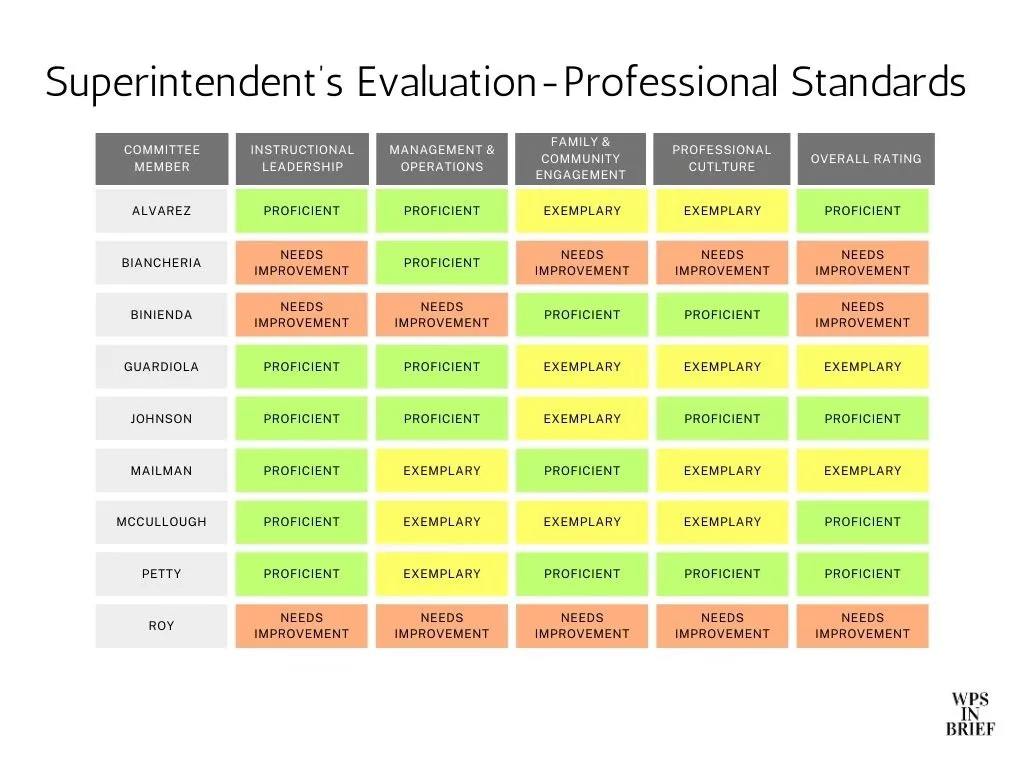
Just wanted to say thank you, Aislinn — your clarity, professionalism, and objective focus on the facts are very much appreciated. You reminded me of a giving opportunity I’d forgotten about, and thanks to your link, I was able to contribute. Your work really matters. Thank you.
As a WPS teacher and parent I really appreciate your reporting! I also taught in BPS when they changed the grading policy. I definitely have some thoughts!